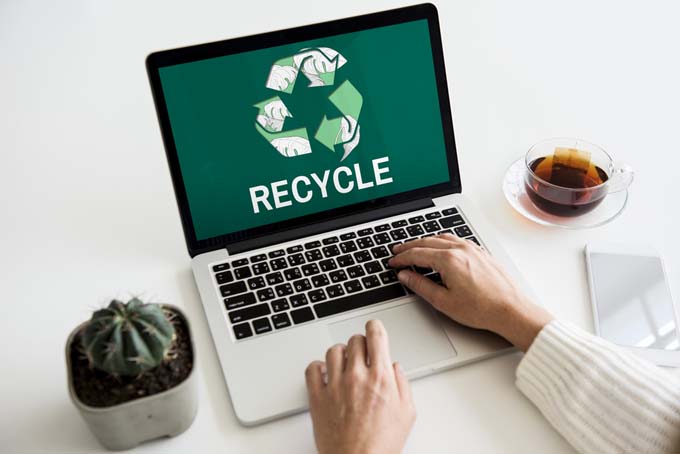Work on the Swiss "battery passport" is in full swing
Because the EU is introducing a "passport requirement" for industrial batteries from 2027, Swiss market players will also have to adapt. BloqSens AG is therefore teaming up with CSEM to launch an EU-compliant digital battery passport "Made in Switzerland".

Anyone traveling abroad must show their biometric passport, depending on their destination. This important document not only provides detailed information about a person's identity, but also shows where they have been in the past. "Our battery passport fulfills the same function for batteries," explains Peter Krummenacher, CEO of Basel-based BloqSens AG. The company, which specializes in the development of IoT (Internet of Things) solutions, is driving the development of the battery passport forward with great vigour. Because time is pressing: By February 18, 2027, all industrially used batteries circulating in or exported to the EU must be identifiable and traceable via a passport.
Significant consequences for Switzerland
What does the EU expect from this step - and why is this legislation also important for Switzerland? Basically, the battery passport is intended to promote the circular economy for industrial batteries. For example, a car battery can be "made fit" for use in a residential building with the appropriate adaptations. The converted battery is then used there to store solar energy. This second life cycle of resource-intensive batteries represents an important step towards a more sustainable future. A third or fourth life cycle is also possible in principle. In addition to this reuse, the focus is also on recycling the raw materials used; after all, useful metals such as nickel and cobalt as well as rare resources such as lithium are used in the construction of batteries.
The battery passport issue is important for Switzerland for a very specific reason, as Andreas Hutter, Head of the CSEM Battery Innovation Hub, explains: "We have a large second-life industry in this country, which is already giving numerous batteries a new function and thus promoting sustainability." This sector is dependent on being able to continue exporting batteries to the EU or being allowed to purchase them from the EU. From 2027, companies in this sector will therefore also be required to provide proof of the identity and previous use of their storage systems via a battery passport. "A Swiss battery passport solution is therefore an important economic factor as well as a future competitive advantage," emphasizes Hutter.
Cooperation brings advantages
In order to launch the "made in Switzerland" battery passport on time, BloqSens AG has entered into a cooperation with the battery experts at CSEM. The basis for this is a battery prototype that is currently being developed at the CSEM Battery Innovation Hub. This will be able to better map the condition of its individual cells and thus optimize their service life. BloqSens AG is developing its battery pass application on this basis. This brings with it a decisive advantage: as the CSEM prototype already represents the "intelligent battery of the future", BloqSens can design its digital pass solution to meet future requirements. The company is therefore already a significant step ahead at the start of the project.
For the Swiss battery passport, Peter Krummenacher and his team rely on a decentralized storage solution that makes use of the advantages of blockchain technology. This makes the stored data forgery-proof, can be updated automatically and can be used transparently by the authorized bodies at any time. In future, each battery will be provided with a QR code that provides predefined user groups with specific information about the respective storage facility.
The collaboration with CSEM is a game changer for Krummenacher: "The professionals at the CSEM Battery Innovation Hub are contributing their first-class battery expertise to our joint project and we can take care of all IT and safety aspects." The result is a battery passport that meets European requirements, represents a new seal of quality as a Swiss product - and can also classify the intelligent batteries of the future.
Source: www.bloqsens.com / www.csem.ch









